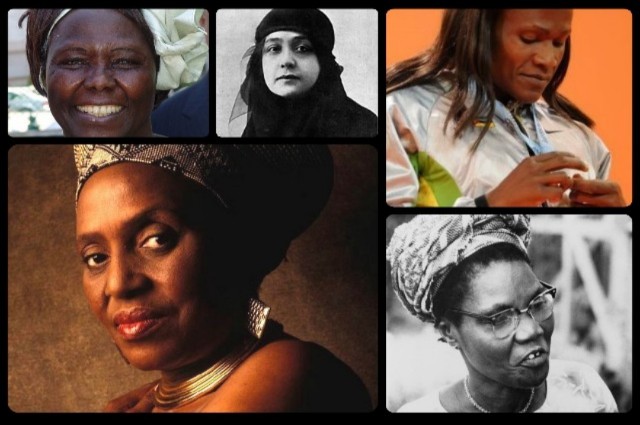The 31st day of July is designated as African Women’s Day throughout the continent, marking a special occasion to honor and acknowledge the significant contributions of African women in shaping a cohesive Pan-African identity.
This article presents, without any specific arrangement, a fascinating account of 10 influential African women who left an indelible mark on the 20th century, offering readers an enjoyable reading experience.
10) Huda Sha’arawi
(June 23, 1879– December 12, 1947)
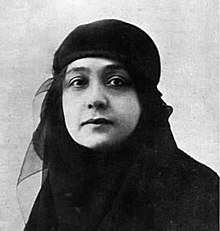
Huda Sha’arawi, an influential figure in Egypt, was a prominent feminist leader, suffragette, nationalist, and the visionary behind the Egyptian Feminist Union. She established various organizations dedicated to advancing women’s rights and is widely acknowledged as the pioneer of Egypt’s women’s movement.
In 1908, Sha’arawi played a vital role in setting up Egypt’s first non-religious charitable institution run by Egyptian women. This organization focused on providing medical assistance to underprivileged women and children. She and her husband were strong supporters of Egypt’s struggle for independence from the United Kingdom, with Ali Sha’arawi being a founding member of the nationalist Wafd party.
At the forefront of progress, in 1920, she founded and became the president of the Wafdist Women’s Central Committee. The active involvement of Egyptian women in the nationalist movement marked a significant turning point in Egyptian society, representing a substantial number of women engaged in political activism for the first time.
After the passing of her husband, Sha’arawi shifted her focus from the nationalist movement to advocating for women’s equality. In 1923, she established the Egyptian Feminist Union, aiming to achieve women’s suffrage, reform personal status laws, and enhance educational opportunities for girls and women.
Huda Sha’arawi’s tireless efforts took a toll on her well-being, and she passed away on December 12, 1947. In recent years, as historical studies expand beyond the spotlight on “great men,” numerous books and articles have shed light on her life and contributions.
9) Funmilayo Ransome-Kuti
(October 25, 1900 – April 13,1978)
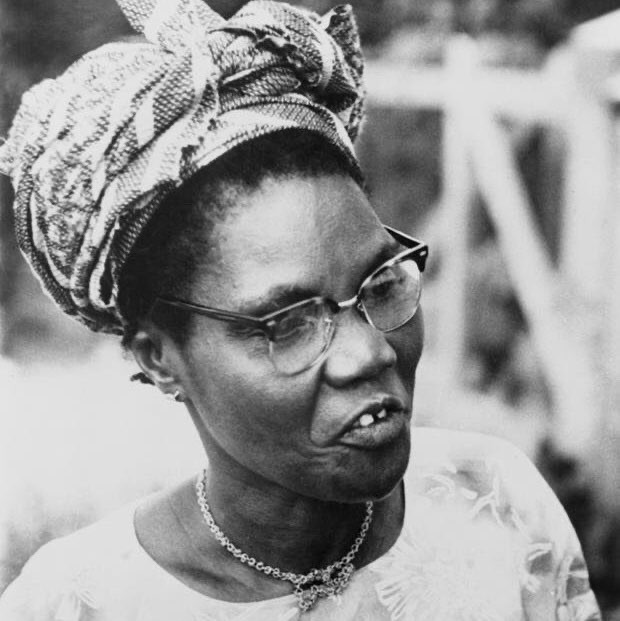
Born in Abeokuta, now Ogun State Nigeria, at the start of the 20th century, Funmilayo Ransome-Kuti was a trailblazer. She was the first of six girls to enroll at Abeokuta Grammar School in 1914, where she would go on to become a teacher. Seeking further education, she ventured to Wincham Hall School for Girls in Cheshire, England in 1919. However, the racism she encountered compelled her to shed her Christian name, Frances Abigail, when she returned to Nigeria in 1922.
Ransome-Kuti quickly became involved in significant anti-colonial educational movements in Nigeria and West Africa. Her tireless efforts aimed to improve women’s access to education and representation in politics. In 1944, she established the Abeokuta Ladies’ Club (later known as the Abeokuta Women’s Union). This organization was dedicated to fighting for women’s political, social, and economic rights and would eventually become one of the most influential women’s movements of the 20th century.
Her deep commitment to cooperation, solidarity, and unity led her to actively participate in politics, notably during the 1946 pre-independence constitutional negotiations. Funmilayo Ransome-Kuti emerged as one of the most prominent leaders of her generation and was recognized for her exceptional service by being awarded the Vladimir Lenin Peace Prize in 1970.
Tragically, her life was cut short when her son’s commune, known as the Kalakuta Republic, was attacked by Nigerian soldiers in 1977. During the incident, she was thrown from a second-floor window, subsequently falling into a coma. Funmilayo Ransome-Kuti passed away on April 13, 1978, at the age of 77.
8) Miriam Makeba
(March 4,1932 – November 10, 2008)
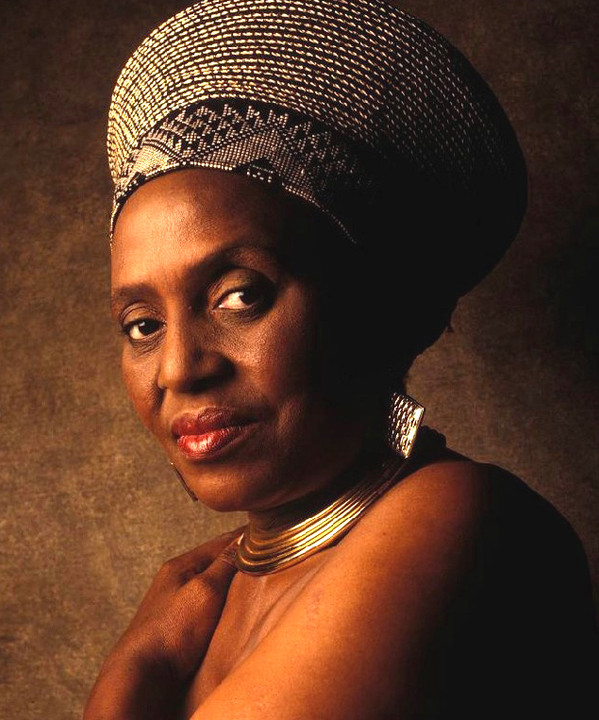
Zenzile Miriam Makeba, widely recognized as Mama Africa, was a renowned singer, songwriter, actress, and civil rights advocate from South Africa. She actively fought against apartheid and the oppressive white minority rule in her homeland.
Makeba embarked on her professional singing career in 1954, primarily performing in Southern Africa. Her exceptional vocal abilities and recorded music gained her immense popularity in South Africa by the late 1950s, catching the attention of prominent American artists like Harry Belafonte.
Thanks to their support, Makeba moved to the United States in 1959, where she forged a successful path as a singer and recording artist. While she excelled in performing various popular songs, she truly shone when introducing Xhosa and Zulu music to Western audiences. Moreover, her anti-apartheid songs became widely recognized and admired.
However, in 1960, Makeba was unfairly barred from re-entering South Africa, which forced her into exile for the next three decades. The South African government went as far as banning her records and revoking her passport in 1963.
In 1990, Nelson Mandela, a prominent Black activist who had recently been released from his lengthy imprisonment, encouraged Makeba to return to South Africa. He believed it was time for her to come back home and inspired her. Subsequently, she performed in her homeland for the first time since her exile in 1991. Despite facing health issues, she continued to perform in the following years.
Sadly, she passed away at the age of 76 from a heart attack shortly after giving a concert in Italy in 2008. Even in her final years, Makeba remained devoted to her music and activism, leaving behind a powerful legacy.
7) Wangari Maathai
(April 1,1940 – September 25, 2011)
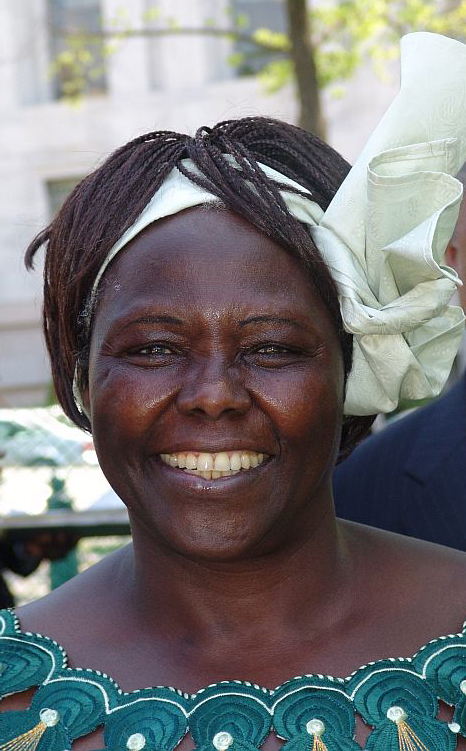
In 2004, Wangari Maathai made history as the first African woman to receive the prestigious Nobel Peace Prize. Her achievements did not stop there, as she also became the first female scholar from East and Central Africa to obtain a doctorate in biology and the first female professor in Kenya. Maathai played an active role in Kenya’s fight for democracy and was a vocal critic of Daniel Arap Moi’s regime.
In 1977, Maathai launched a grassroots movement aimed at combating deforestation, which posed a threat to the livelihoods of the agricultural population. This movement encouraged women to take action by planting trees in their communities and promoting environmental awareness. Known as the Green Belt Movement, this initiative spread throughout Africa and resulted in the planting of over thirty million trees.
Maathai’s mobilization of African women extended beyond the realm of sustainable development. She believed that tree-planting was interconnected with democracy, women’s rights, and global solidarity. Aside from her environmental work, Maathai was also a member of Kenya’s Parliament, where she served as the Assistant Minister for Environment and Natural Resources under President Mwai Kibaki’s administration from January 2003 to November 2005. Additionally, she held an honorary position on the World Future Council’s Honorary Council.
Not only was Maathai an activist, but she was also an accomplished academic and author, contributing significantly to fields such as ecology, development, gender studies, and African cultures and religions. Unfortunately, on September 25, 2011, Maathai passed away at the age of 71 due to complications from ovarian cancer. Her legacy as a trailblazing African woman and environmentalist lives on.
6) Thérèse Sita-Bella
(1933 -27 February 2006)
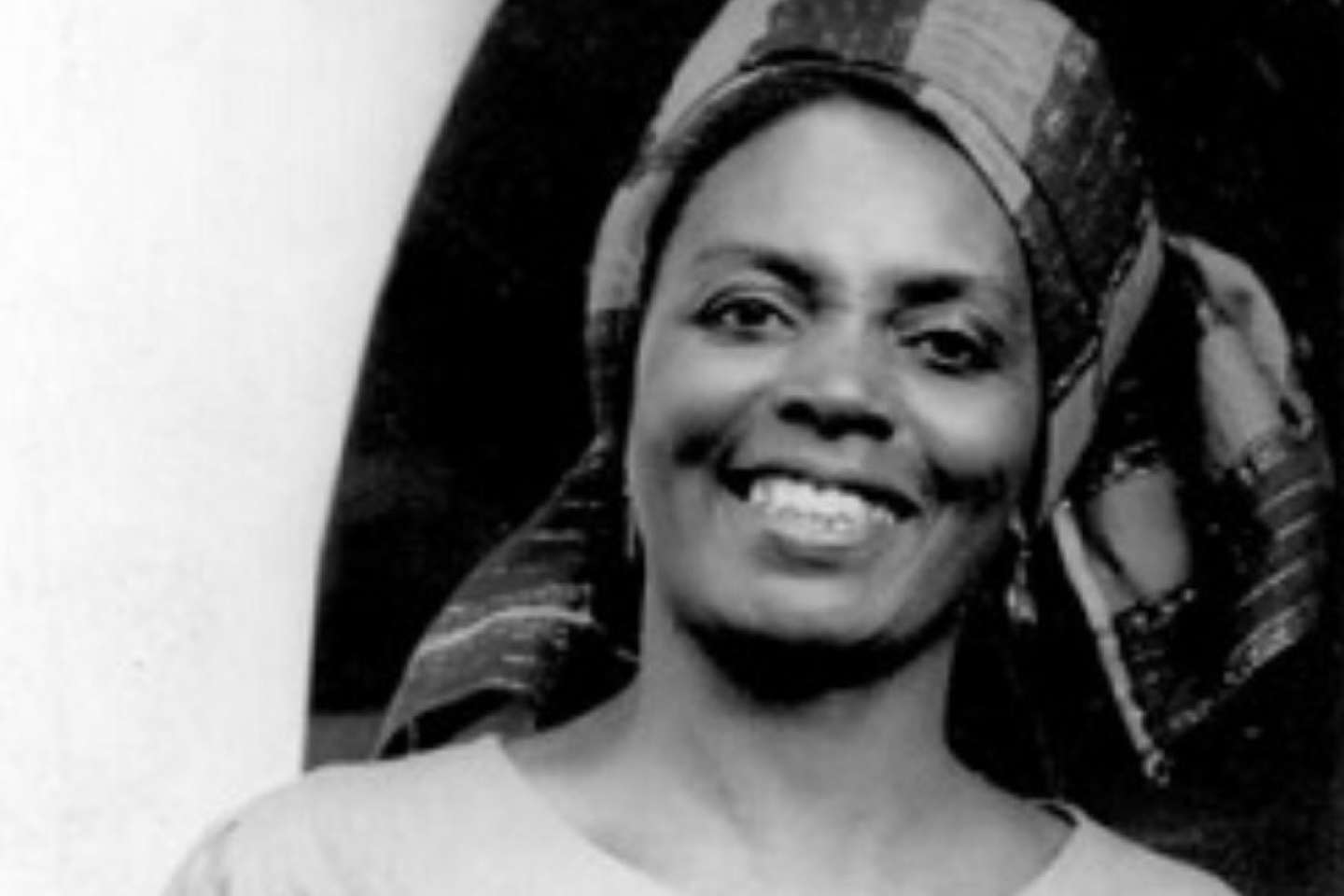
Born Thérèse Bella Mbida, Thérèse Sita-Bella was a pioneer in the film industry as she became the first female filmmaker in both Africa and Cameroon. Coming from the Beti tribe in southern Cameroon, she received her education from Catholic missionaries. After completing her baccalaureate in Yaoundé, the capital of Cameroon, she pursued further studies in Paris during the 1950s, where her passion for journalism and film was ignited.
In 1955, Sita-Bella embarked on her career as a journalist. It wasn’t until 1963 that she broke new ground and emerged as Africa and Cameroon’s inaugural female filmmaker. From 1964 to 1965, she even co-founded and worked for France’s La Vie Africaine, a newspaper that further established her influence.
Upon her return to Cameroon in 1967, Sita-Bella contributed her expertise to the Ministry of Information, eventually obtaining the role of Deputy Chief of Information.
One of her notable works was the documentary Tam-Tam à Paris, released in 1963, which chronicled the journey of the Cameroonian National Ensemble as they toured Paris. Sita-Bella’s undeniable trailblazing spirit made her an inspiration for aspiring female filmmakers, as she navigated an industry predominantly dominated by men.
Sadly, Sita-Bella’s life was cut short due to colon cancer, and she passed away on February 27, 2006, at the age of 73, while receiving treatment at a hospital in Yaoundé. To honor her legacy, the Sita Bella film hall at the Cameroon Cultural Centre was named after her.
5) Angie Elizabeth Brooks
(August 24, 1928 – September 9, 2007)
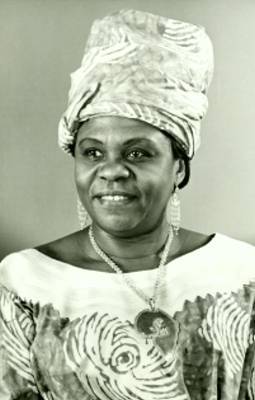
Angie Elizabeth Brooks is renowned for her remarkable accomplishments, notably being the second woman and the first and only African woman to assume the role of President in the United Nations General Assembly in 1969. During her term, she displayed extraordinary dedication and made substantial contributions towards the United Nations’ efforts to uphold global peace and security. Despite inheriting numerous challenges, including South Africa’s occupation of South-West Africa (later known as Namibia) and their apartheid policy, she skillfully led the council and achieved significant outcomes.
One noteworthy achievement was the adoption of various resolutions, such as 276 and 283, which reaffirmed the Council’s stance. Additionally, Resolution 284 was passed under her leadership, which sought an advisory opinion from the International Court of Justice regarding the legal ramifications of South Africa’s continued presence in Namibia. In 1971, the International Court of Justice ruled that South Africa’s administration in Namibia was illegal as it contravened the UN Charter and other relevant international laws and principles.
Furthermore, Angie Brooks played a crucial role in the processes that eventually led to the independence of the Republic of Namibia on March 21, 1990. By tirelessly advocating against South Africa’s apartheid policies extending to Namibia, she exposed their flagrant violation of the purposes and principles outlined in the UN Charter. Sadly, Angie Brooks passed away on September 9, 2007, in Houston, Texas at the age of 79.
4) Jeanne Martin Cissé
(April 6, 1926-February 21, 2017)
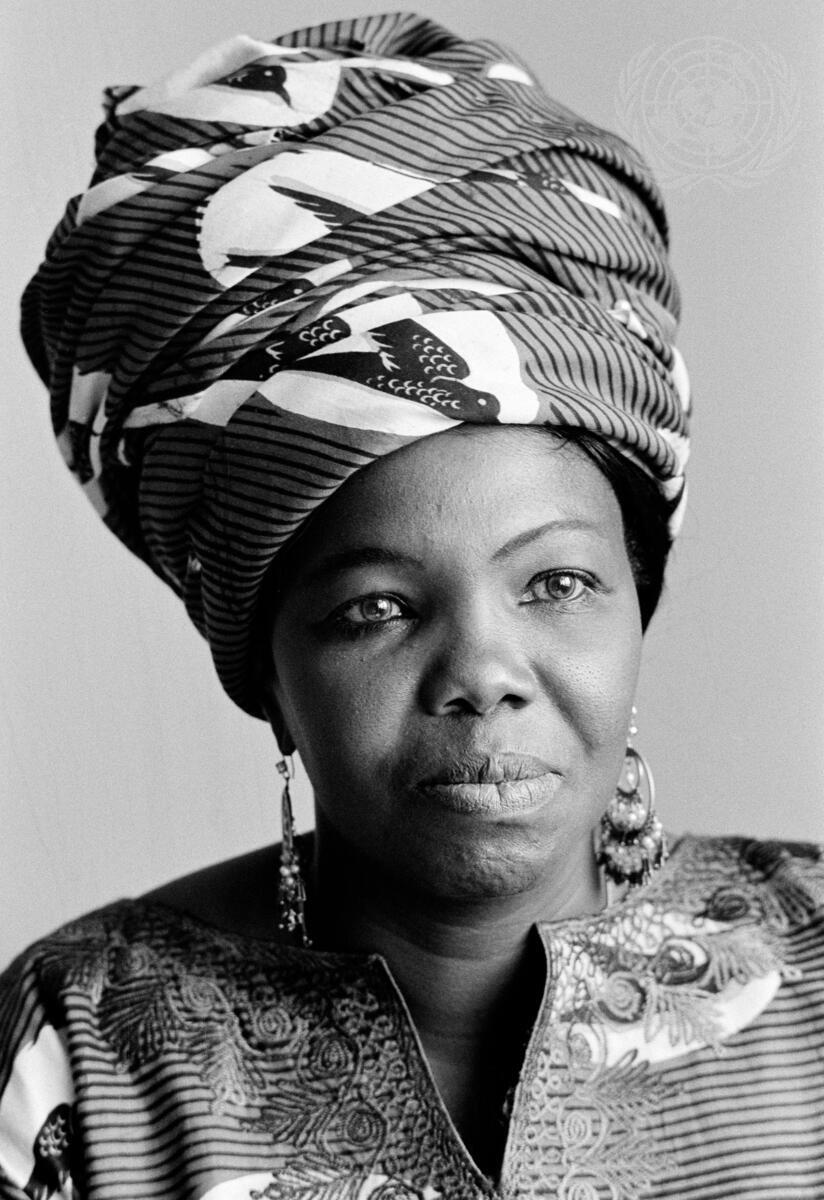
Jeanne Martin Cissé, a Guinean diplomat, made history as the first woman to hold the position of permanent representative for the United Nations. Her journey began in 1945 when she started her career as a teacher. From 1954 to 1958, she served as a school director before transitioning into politics.
Joining the Democratic Party in 1959, Cissé worked in the Federal Office of the Kinda Region. She held several important positions within the National Assembly of Guinea, serving as its first African secretary, second vice-president, and first vice-president. She was also actively involved in the National and Regional Women’s Committees of the Assembly. Additionally, Cissé held the role of secretary-general for the Conference of African Women from 1962 to 1972.
In 1972, Cissé achieved a groundbreaking milestone by becoming the first woman appointed as a permanent representative to the United Nations, a position she held until 1976. During her tenure, she notably presided over the UN Security Council for the first time. After her UN service, Cissé served as Guinea’s minister of social affairs from 1976 to 1984.
In recognition of her remarkable contributions to advancing the lives of African women, Cissé received the esteemed Lenin Peace Prize in 1975. Her focus has always been on empowering women to become engaged and influential members of their own countries, both politically and socially.
Jeanne Martin Cissé passed away on February 21, 2017, at the age of 90. Her legacy as a trailblazer for women’s rights and her dedication to improving the welfare of African women will forever be remembered.
3) Aoua Kéita
(July 12, 1912 – May 7, 1980)
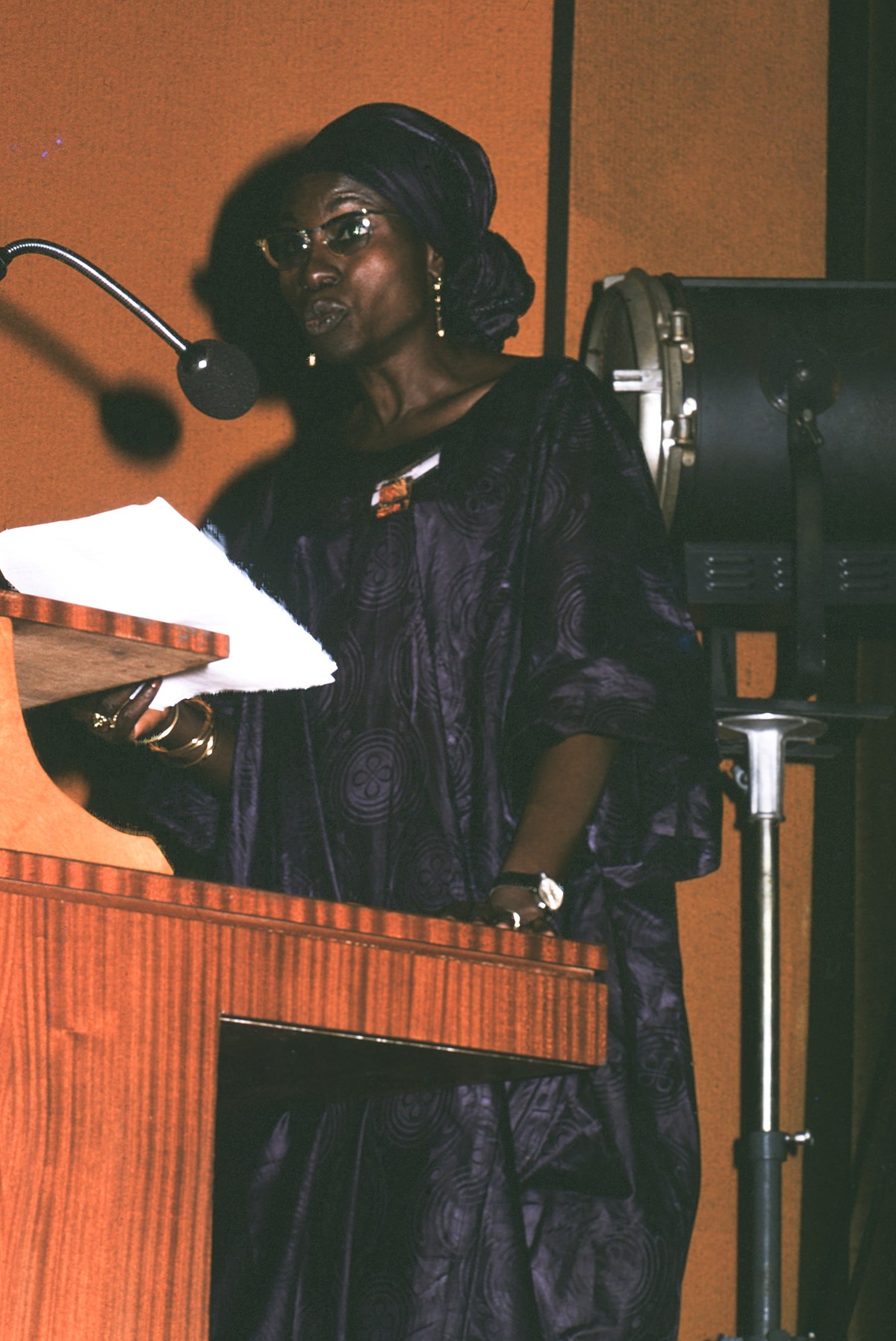
Aoua Keita, a Malian activist and midwife, dedicated her life to anti-colonial struggles and championing the rights of women in her country. Born in Bamako, she had the privilege of being accepted into the city’s inaugural girls’ school in 1923. Her passion for healthcare led her to pursue studies in midwifery at the Dakar School of Medicine, where she obtained her degree in 1931.
Keita became an active member of the African Democratic Rally (RDA) and played a significant role in establishing women’s wings within the party. As a civil servant and midwife, she took charge of creating electoral campaign materials for the RDA. In 1958, she was appointed the RDA’s Commissioner for Women, and the following year, she achieved a significant milestone by becoming the first woman from French-speaking West Africa to be elected to her nation’s national legislative assembly.
Alongside her political endeavors, Keita also founded a women’s trade union in 1956 and supported the formation of a Pan-African women’s organization. Her efforts were focused on improving living conditions for African women. One of her notable achievements was her influential role in the drafting and passing of the Marriage and Guardianship Code in 1962, which granted women in Mali new rights.
In 1975, she published her autobiography, which garnered recognition as it was awarded the prestigious Grand Prix littéraire d’Afrique Noire a year later. The autobiography serves as a testament to Keita’s exceptional dedication to her profession as a midwife and her unwavering commitment to political activism during the challenging era of colonization.
2) Asnaketch Worku
(c. 1935-September 14, 2011)
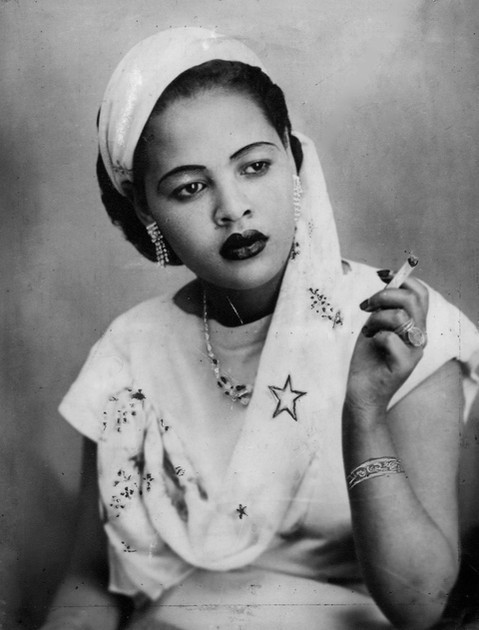
Asnakech Worku, Ethiopia’s first actress, left an indelible mark on the country’s cultural landscape as both a beloved and controversial figure. Born in Sidist Kilo, Addis Ababa, around 1935, she grew up in the same neighborhood. Worku’s parents divorced shortly after her birth, and tragically, she lost her mother at the tender age of three. Raised by her godmother, with whom she had a strained relationship, she eventually moved in with her older sister, and the two shared a love for attending plays and concerts.
Worku’s journey as an entertainer began in small bars and cabarets, where she showcased her talents after purchasing her first krar, a traditional Ethiopian harp-like instrument, for just 25 cents. In the 1950s, her beauty and performances in romantic dramas drew mixed reactions, making her a polarizing figure. However, she was most renowned for her prowess with the krar, along with her sharp wit and captivating improvisations. Her musical career truly took flight in 1963 when she portrayed Desdemona in a production of Othello.
In April 1974, she released her first album, “Krar songs by Asnaketch Worku,” under the Philips-Ethiopia label. While it enjoyed moderate success, it was later withdrawn from the market due to the revolution that unfolded. Throughout the 1970s, her songs remained popular on the radio. Worku devoted 30 years of her life to the National Theatre, where she worked until her retirement in 1989. However, she continued to act sporadically during the 1990s.
Tragically, on September 14, 2011, Asnakech Worku passed away at Bete Zata Hospital in Addis Ababa, Ethiopia’s capital city. Her legacy lives on as an influential pioneer in Ethiopian entertainment, leaving an enduring impact on the arts and culture scene of her beloved nation.
1) Maria Mutola
(b. October 27,1972)
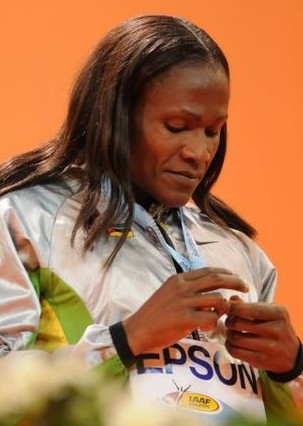
Maria Mutola emerged as a dominant force in international athletics at the tender age of 15, maintaining her position at the top for an impressive span of over 20 years. Her accomplishments include participating in six Olympic Games and securing Mozambique’s first Olympic gold medal in the 800m event in Sydney in 2000.
Born on October 27, 1972, in a deprived area called Chamanculo in Maputo, Mutola initially displayed talent in football but transitioned to athletics at the age of 14 at the suggestion of renowned writer and poet José Craveirinha. Recognizing her immense potential as a middle-distance runner, Craveirinha’s advice proved to be pivotal.
After months of rigorous preparation, Mutola won a silver medal in the 800m at the African Championships, which granted her qualification for the 1988 Olympic Games in Seoul. Although she competed in the first round at the age of 15, she did not progress further. Nevertheless, the experience proved to be valuable for her future endeavors in athletics.
Mutola is widely hailed as one of the greatest female runners in the 800m event, receiving acclaim from both track insiders and fans alike. Her consistent standout performances in major championships, combined with her remarkable longevity, set her apart from her peers. She continued to compete at the highest level for an astonishing two decades before retiring from athletics at the age of 35 in 2008.
Furthermore, Mutola holds a unique distinction as the sole athlete in history to secure victories in the Olympic, World, World Indoor, Commonwealth Games, Continental Games, and Continental Championships in the same event.
